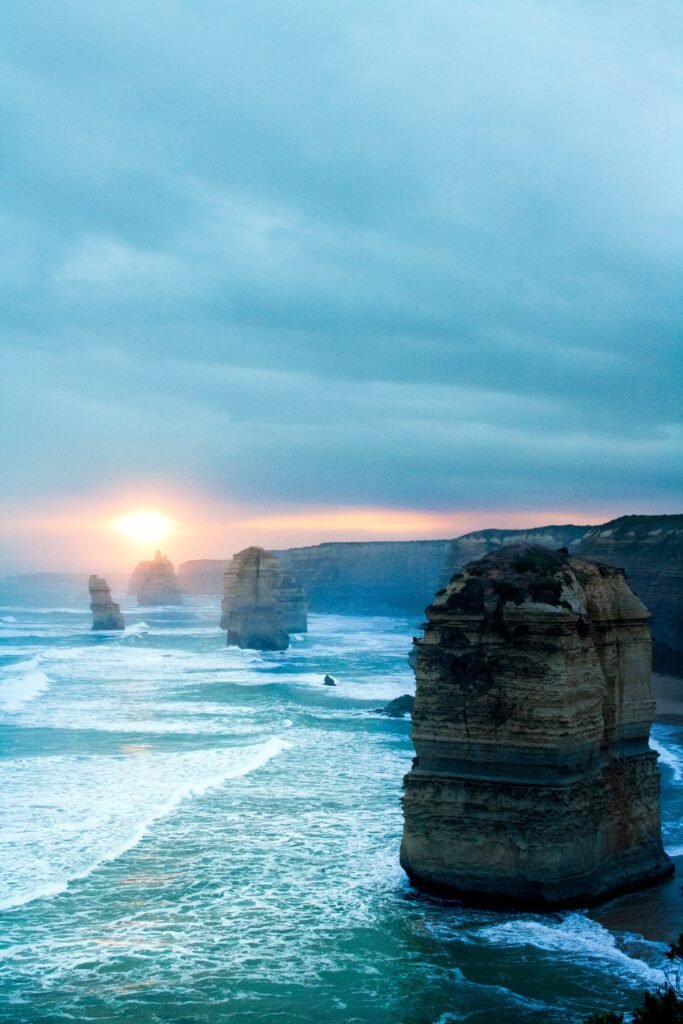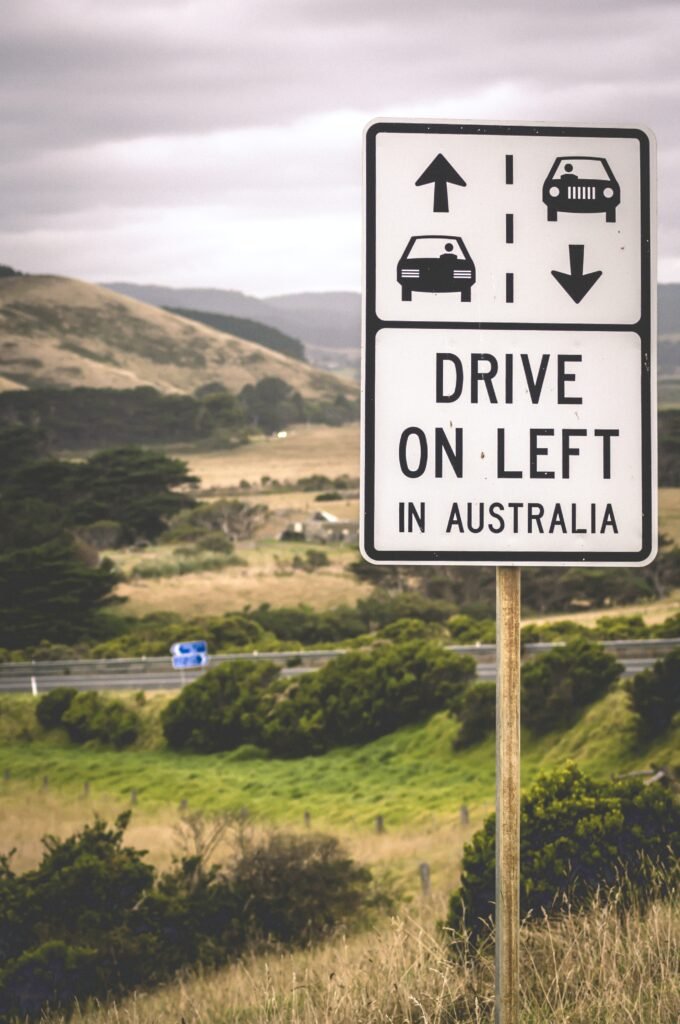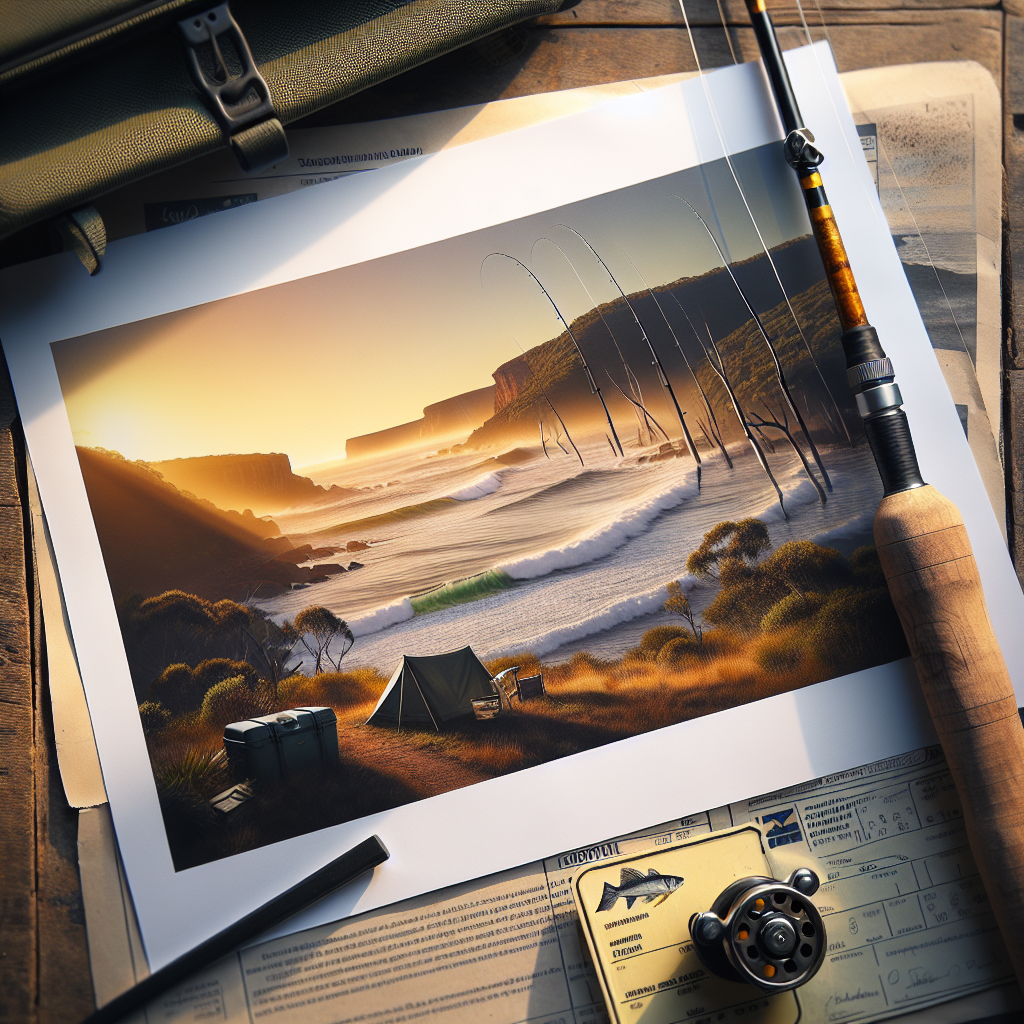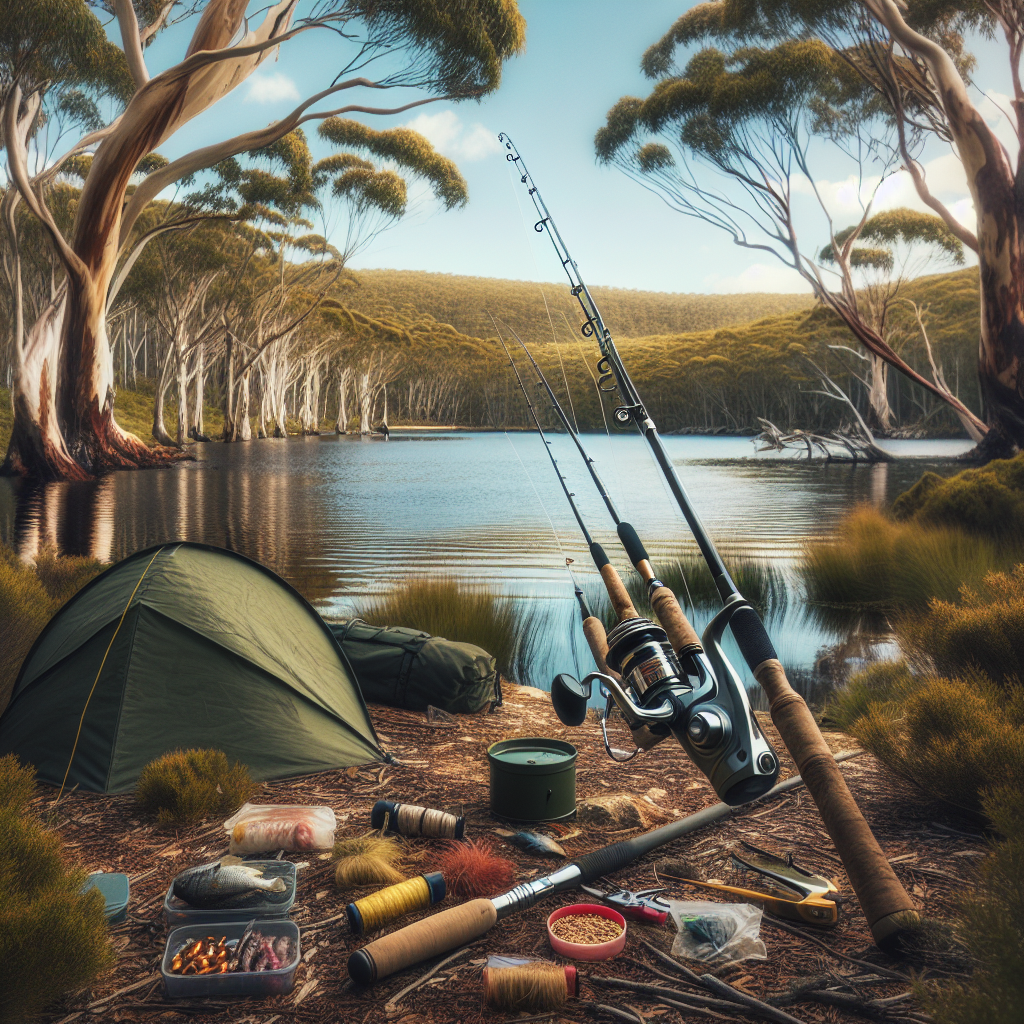

Australia is known for its beautiful landscapes and abundant recreational activities. One popular pastime that many people enjoy while camping in Australia is fishing. However, before you cast your line into the water, it’s important to understand if there are any restrictions or rules that you need to be aware of. In this article, we will explore whether or not you can fish while camping in Australia and provide you with information on any restrictions that may apply. So, grab your fishing gear and let’s dive into the world of camping and fishing in Australia!
General Fishing Regulations
Licenses and Permits
Before you cast a line in any fishing spot in Australia, it’s important to familiarize yourself with the country’s fishing regulations. In most states and territories, you’ll need a fishing license or permit to fish legally. These licenses are often available for purchase online, at local tackle stores, or at designated fishing license agents. Make sure to check the specific requirements for the state or territory where you plan to fish, as different areas may have different regulations regarding licenses and permits.
Size and Bag Limits
To ensure the sustainability of fish populations, size and bag limits are in place throughout Australia. These limits dictate the minimum and maximum sizes of fish that you can keep, as well as the maximum number of fish you can take home. The purpose of these limits is to protect the breeding stock and prevent overfishing. Checking the size and bag limits for the specific type of fish you are targeting is crucial to avoid any penalties and contribute to the conservation efforts.
Protected Species
Australia is home to a diverse range of unique and endangered species, both on land and in the water. It’s essential to familiarize yourself with the protected species in the area you plan to fish. These protected species have strict regulations in place to ensure their preservation. If you accidentally catch a protected species, it’s important to handle it carefully and release it back into the water immediately. Contact the local fishing authorities if you are unsure about the identification of a fish species.
Fishing Seasons
Fishing seasons refer to specific periods of time during which certain fish species or types of fishing are allowed or restricted. These seasons are in place to protect breeding cycles, ensure sustainable fishing practices, and prevent overfishing. It is important to be aware of any fishing seasons that may be relevant to your location and target fish species. Check with the local fisheries department or fishing authorities to determine the specific fishing seasons for the region you plan to visit.
Fishing Methods
In Australia, there are regulations regarding the use of certain fishing methods to protect fish populations and maintain sustainable fishing practices. Common fishing methods include bait fishing, lure fishing, fly fishing, and catch and release. It is important to familiarize yourself with the specific regulations and restrictions on fishing methods for the area you plan to fish. Be sure to use appropriate fishing gear and methods that comply with local regulations to ensure both the safety of the fish and the sustainability of the ecosystem.
Fishing in National Parks and Protected Areas
General Rules
When planning to fish in national parks and protected areas, it is crucial to understand and follow the general rules set by the managing authorities. These rules may include restrictions on fishing locations, fishing methods, and camping areas within the park. Respecting these rules will help protect the delicate ecosystems and ensure that the natural beauty of these areas can be enjoyed by future generations.
Specific Regulations for each State
Each state in Australia has its own specific regulations when it comes to fishing in national parks and protected areas. These regulations may vary depending on the unique ecological characteristics and conservation efforts of each area. It is recommended to check with the local fisheries department or park authorities for detailed information on the specific regulations in the state you plan to visit. This will ensure that you are aware of any restricted areas or additional permits required for fishing within national parks.
Freshwater Fishing in National Parks
Many national parks in Australia are home to pristine freshwater bodies, such as rivers, lakes, and streams, offering excellent opportunities for freshwater fishing. However, it is essential to be aware of any specific rules and regulations related to freshwater fishing within these parks. Some parks may have designated fishing zones, restricted areas, or closed seasons to protect sensitive ecosystems and native species. Take the time to familiarize yourself with these regulations to enjoy your fishing experience while preserving the natural environment.
Saltwater Fishing in National Parks
Australia’s coastal national parks provide breathtaking scenery and incredible saltwater fishing opportunities. However, fishing in these areas often requires adherence to specific regulations. Some national parks may have designated fishing areas, fishing zones, or seasonal closures to protect vulnerable marine species and breeding habitats. Understanding and respecting these regulations is vital to preserving the marine biodiversity and ensuring sustainable fishing practices. Check with the local park authorities for detailed information on saltwater fishing regulations within national parks.


Fishing in State Forests and Reserves
Permits and Regulations
If you’re planning to fish in state forests and reserves in Australia, it is important to be aware of any permits and regulations that apply to the area. While state forests and reserves generally have more relaxed fishing rules compared to national parks, it is still essential to obtain any necessary permits and follow the local fishing regulations. Be sure to check with the forestry department or local authorities for specific rules relating to fishing activities in state forests and reserves.
Specific Rules for each State
Similar to national parks, each state in Australia may have its own specific rules and regulations when it comes to fishing in state forests and reserves. These rules may include restrictions on fishing methods, catch limits, and designated fishing areas within the forest or reserve. To ensure compliance with the local regulations, it is advisable to contact the relevant state forestry department or local authorities and obtain up-to-date information before embarking on your fishing trip.
Fishing in Marine Parks and Sanctuaries
Marine Park Zones
Australia is renowned for its stunning marine parks and sanctuaries, which are designed to protect and conserve the marine environment and its inhabitants. These protected areas are divided into different zones, each with its own specific regulations and permitted activities. Common zones you may encounter in marine parks include sanctuary zones (where no fishing is allowed), general use zones (where recreational fishing is permitted), and special purpose zones (where specific activities such as research may be allowed). It is crucial to familiarize yourself with the zone map of the marine park you plan to visit and understand the restrictions and permissions associated with each zone.
Permitted Activities
In marine parks and sanctuaries, recreational fishing is often permitted in designated general use zones. However, it is important to adhere to any rules and regulations that apply to these zones. These regulations may include size and bag limits, restricted fishing methods, and closed seasons for certain species. Familiarize yourself with the specific regulations for the marine park you plan to visit to ensure you can fish responsibly while respecting the marine ecosystems and their inhabitants.
Restricted Areas
Within marine parks and sanctuaries, there may be restricted areas where fishing activities are prohibited entirely. These areas are often designated as sanctuary zones to protect delicate habitats, marine species, and breeding grounds. It is crucial to pay attention to any signage or maps indicating restricted areas within the marine park. Respect these restrictions to maintain the ecological balance and minimize human impact on these fragile marine environments.


Fishing in Rivers and Lakes
Freshwater Fishing Regulations
Rivers and lakes offer excellent freshwater fishing opportunities in Australia. However, it is important to be aware of the specific regulations and restrictions imposed on fishing in these water bodies. Depending on the area, there may be size and bag limits, closed seasons, and restricted fishing methods. These regulations are in place to maintain fish populations and preserve the natural balance of these aquatic ecosystems. Check with the local fisheries department or fishing authorities for detailed information on the freshwater fishing regulations in the specific river or lake you intend to fish.
Popular Fishing Spots
Australia boasts an abundance of popular fishing spots in its rivers and lakes, attracting fishing enthusiasts from all over the world. From the mighty Murray River to the picturesque Lake Macquarie, each water body offers its own unique angling experiences. Researching and exploring popular fishing spots will not only enhance your chances of success but also connect you with the local fishing community, who can provide valuable insights and tips. Consult local fishing forums, guidebooks, or contact the state fishing authorities to discover the best fishing spots in the region you plan to visit.
Protected Areas and Closed Seasons
While rivers and lakes provide ample opportunities for fishing, it is essential to be aware of any protected areas or closed seasons in your chosen fishing location. Protected areas may include fish breeding grounds, sensitive habitats, or sanctuary zones. Respect these areas by refraining from fishing and avoiding any disturbance that could harm the local ecosystem. Closed seasons, on the other hand, aim to protect specific fish species during their breeding or vulnerable periods. Stay informed about closed seasons to ensure compliance with regulations and contribute to sustainable fishing practices.
Fishing in Coastal Areas
Saltwater Fishing Regulations
Coastal areas in Australia are renowned for their diverse saltwater fishing opportunities. From surf fishing on pristine beaches to reef fishing in crystal-clear waters, the coastal regions offer a variety of fishing experiences. However, it is important to familiarize yourself with the saltwater fishing regulations in the area you plan to fish. These regulations may include size and bag limits, restricted fishing methods, and closed seasons for certain fish species. Adhering to these regulations will help protect the marine environment and ensure the sustainability of the fishing resources.
Popular Fishing Spots
With its vast coastline, Australia is blessed with countless popular fishing spots along its shores. Whether you’re targeting iconic species such as snapper or barramundi, or seeking the thrill of game fishing for marlin or tuna, there is a fishing spot to suit every angler’s preferences. Connecting with local fishing communities, browsing fishing magazines or websites, and consulting experienced anglers will provide valuable insights into popular fishing spots in coastal areas. Remember to respect the local environment and follow all fishing regulations to maintain the health of fish populations and the marine ecosystem.
Protected Areas and Closed Seasons
Coastal areas may encompass protected areas, including marine parks, sanctuary zones, and other restricted zones. These areas are designed to protect sensitive habitats, breeding grounds, and endangered species. It is vital to familiarize yourself with the specific regulations and boundaries of these protected areas to avoid any unintentional violations. Additionally, certain fish species may have closed seasons during their breeding or vulnerable periods. Stay informed about these closed seasons to contribute to sustainable fishing practices and ensure the long-term health of fish populations.


Fishing from Campgrounds
Rules and Regulations
Camping and fishing often go hand in hand, offering outdoor enthusiasts the opportunity to indulge in both activities simultaneously. However, it is essential to understand the rules and regulations that apply to fishing from campgrounds. Some campgrounds may have specific fishing restrictions within their boundaries, designated fishing areas, or rules about fishing permits. Following these rules and regulations will ensure a harmonious camping and fishing experience while respecting the natural environment and the rights of other campers.
Common Fishing Locations
Campgrounds in Australia are often strategically located near popular fishing spots, providing campers with easy access to prime fishing areas. These common fishing locations attract anglers of all skill levels, offering opportunities to catch a variety of species. While some campgrounds may have facilities such as fishing platforms, jetties, or boat ramps, others may require you to explore the surrounding areas for potential fishing spots. Consult with campground managers, fellow campers, or local fishing resources to discover the best fishing locations near your chosen campground.
Fishing Safety and Etiquette
Safety Precautions
Fishing is a rewarding and enjoyable activity, but it’s important to prioritize safety while out on the water. Always wear a life jacket or personal flotation device when fishing from a boat or in areas with strong currents. Familiarize yourself with local weather conditions, tides, and potential hazards before heading out. Carry essential safety equipment such as a first aid kit, communication devices, and a mobile phone in case of emergencies. It’s also advisable to inform someone of your fishing plans, especially if you’re venturing into remote areas.
Environmental Responsibility
As an angler, it is your responsibility to preserve and protect the environment in which you fish. Avoid littering and dispose of any waste properly. Do not use live bait or release non-native species into the water, as these can harm the local ecosystems. Observe catch and release practices to minimize harm to fish populations and only keep what you plan to consume. Respect protected areas, closed seasons, and restricted zones to maintain the delicate balance of the natural environment. By practicing environmental responsibility, you can contribute to the long-term sustainability of fishing resources.
Camping and Fishing Etiquette
Maintaining proper etiquette while camping and fishing ensures a pleasant experience for all involved. Be considerate of other campers by keeping noise levels to a minimum and respecting quiet hours. When fishing, maintain a reasonable distance from other anglers to avoid interfering with their lines or disturbing their fishing experience. Share fishing tips and local knowledge in a friendly manner, fostering a sense of camaraderie and community amongst fellow anglers. Remember to always clean up after yourself, leaving the campsite and fishing areas in better condition than you found them.


Guided Fishing Tours and Charters
Benefits of Guided Tours
For those seeking an expert-led fishing experience, guided fishing tours and charters offer a wealth of benefits. These professional services provide valuable knowledge about the local fishing hotspots, techniques, and regulations. With the assistance of experienced guides, you can maximize your chances of success and learn new skills along the way. Guided tours also often provide access to specialized features such as fishing equipment, boats, and knowledge of the best times to fish. Whether you’re a beginner or an experienced angler, a guided fishing tour can enhance your fishing adventure while ensuring a worry-free and enjoyable experience.
Booking and Pricing
Booking a guided fishing tour or charter is relatively easy, with many options available online or through tourist information centers. It is advisable to research local operators, comparing their offerings, reputations, and testimonials from past clients. Check for any additional costs such as gear rental, fishing licenses, or meals, as these may vary between operators. Be sure to communicate your preferences and expectations to the tour operator, ensuring they can cater to your needs. By selecting a reputable and knowledgeable guide, you can embark on a guided fishing tour that meets your desires and provides an unforgettable fishing experience.
Important Contact Information
State Fishing Authorities
If you have any questions or require detailed information about fishing regulations, permits, or local fishing conditions, the state fishing authorities are invaluable resources. Each state has its own fishing authority or fisheries department responsible for managing and enforcing fishing regulations. Contact details for these authorities can be obtained from their official websites, local fisheries offices, or tourist information centers. Reach out to them for accurate and up-to-date information regarding fishing in specific locations, permits, and any other inquiries you may have.
Tourist Information Centers
Tourist information centers are excellent resources for obtaining general information about fishing locations, accommodations, and local attractions. They can provide valuable insights into popular fishing spots, regulations, and even recommend guided fishing tours in the area. Whether you’re a local angler exploring a new region or an international visitor seeking fishing adventures in Australia, the staff at tourist information centers can offer friendly assistance and a wealth of knowledge. Plan a visit to a nearby tourist information center to ensure a well-informed and unforgettable fishing experience.
In conclusion, fishing while camping in Australia offers a multitude of opportunities to indulge in your favorite outdoor activities. However, it is essential to familiarize yourself with the specific regulations, permits, and restrictions in the areas you plan to fish. By respecting these regulations and practicing environmental responsibility, you can ensure the sustainable enjoyment of fishing for generations to come. So grab your fishing gear, set up camp, and embark on a memorable angling adventure in the stunning landscapes of Australia.


Leave a Reply